Charles Pakana (Victorian Aboriginal News):
On Monday the 15th of July, the Treaty Authority formally launched its negotiations’ database, which is essentially a source of information containing information about treaty processes in Victoria. Importantly, that encompasses parties involved in the negotiation of a treaty statewide or local, and the areas over which treaties are being negotiated. A particular note is that under the treaty negotiation framework, that one document that came into effect in October 2022, treaties cannot be negotiated unless the relevant parties are included in that database. Joining me once again to talk about this and various other matters as well, and also the next steps forward in Victorian treaties, is one of the co-chairs of the First Peoples’ Assembly of Victoria, Gunditjmara man, Rueben Berg. Rueben, welcome back to the program.
Rueben Berg:
Pleasure to be here, as always.
Charles:
Rueben, within the treaty negotiation framework, there’s frequent mention of treaties and interim agreements. Just by way of explanation, what is the difference between the two and where do they come into the scheme of things?
Rueben:
Yeah, so when we were looking at putting in place that treaty negotiation framework, we were definitely looking at lessons learned from overseas, from other jurisdictions, and we saw in some places it would take 20, 30 years to negotiate a treaty, and you’d have to wait all that time for any outcomes to be achieved. And we didn’t want that to be the case here. And so, there’s a few different ways you can go about achieving that. You could just have multiple treaties and that’s an avenue we’re looking at here is, one treaty, and then you say, “Okay, now we’re going to negotiate an additional treaty on top of that.”
But you can also have interim agreements, which are kind of seen as smaller little discreet packages that you could say, “All right, rather than agreeing on some more significant thing, let’s have an interim agreement, so that we can actually agree on that, implement that, start activating that, and then continue to add things on top of that.” So they’re a way of making sure that it’s not 20, 30 years until we see some outcomes through treaty.
Charles:
But would you still see that those interim agreements have the same weight and legal bearing as would an ultimate treaty?
Rueben:
They would, but I guess there’s no legal specificity around it, but the general sense is that they’re less significant, just in terms of the content. If you’re going to have a really substantial element, you’d make it a treaty, whereas the interim ones might be for less substantial matters you want to just get out of the way, and make sure agreed to move on to.
Charles:
Well, what might be an example of that?
Rueben:
It’s kind of hard to know exactly what a specific example might be, but it could well be that if you’re looking around traditional owner treaties in particular, it could well just be the kind of the baseline starting point that traditional owner groups might like to accept, as they progress towards other elements they want to negotiate. So at the moment, we know we’ve got groups with existing status of recognition under the Traditional Owner Settlement Act, and they have certain rights under that. It could well be that an interim offer for a traditional owner group who don’t yet have that status is say, okay, as a starting point, we’re going to offer you the same status as the traditional settlement act, as an interim agreement, as a building block to additional agreements.
Charles:
Could they also be used to address immediate, urgent issues such as if we were to look at a statewide treaty, and this is all hypothetical of course right now, but one of the greatest problems and challenges facing First Nations here in Victoria is of course incarceration. So is it feasible that the efforts could be made towards developing an interim agreement that would alleviate some of those problems within the justice system?
Rueben:
Yeah, that’s another possibility. And really it’s less a legal consent. It’s more of a strategic and a political consideration of whether you want to define something as an interim agreement or a treaty agreement. I’m very mindful, I guess, that the very first treaty we sign, we want to make sure that it is a very meaningful and powerful thing to say we’ve signed the first treaty.
Charles:
So do you expect that, and we’ll talk about timelines in a short while, but do you expect that there will be many interim agreements within the statewide treaty? Because you’ve only really mentioned the local or the traditional owner treaties at this stage.
Rueben:
Can’t say for certain at this stage. I’d hope that what we achieve is a statewide treaty as the first outcome, rather than interim agreements first. It may well come that there’ll be additional interim agreements that we’d consider after that, but my aspiration is that we have a series of statewide treaty outcomes, so that they’ve got that same status as a treaty, rather than just seeing as an interim agreement. Even though legally there’s no distinct definition of how they would be distinguished, but just sounds better to say you’ve got a statewide treaty.
Charles:
Under the terms of the treaty negotiation frameworks, it seems that if a local government in Victoria wants to enter into a treaty process, whether statewide or local, it needs to be invited into negotiations, and that invitation has to be agreed by both primary negotiating parties. This is what’s referred to, they then become an additional negotiating party, ANP. Now clearly this will be the case with regard to local or traditional owner treaties, but what role, if any, do you see local governments having in the statewide treaty?
Rueben:
It’s a really interesting question. I think when I’ve always conceived of the role of local councils within the treaty landscape, it was primarily focused on at traditional owner level. So I can’t say I’ve given it a great deal of thought about what that might mean for statewide process, but there’s obviously, as you say, there’s avenues to have those conversations. And if local councils have ideas about how they might want to participate in statewide treaty, we’d be more than happy to be open to those conversations.
Charles:
But obviously under the terms of the treaty negotiation framework, a local government can’t enter itself into the database without first being invited.
Rueben:
That’s correct. So you’ve got the primary parties, which is either the state body, the representative body in the state, or the delegation, the traditional owner group and the state. They’re the primary parties and if additional groups want to come on, it needs to have that agreement of both those parties.
Charles:
But it seems though that one of the hot terms right across Victoria right now, especially in local government space and those progressive local governments, is treaty readiness. Everybody wants to become treaty ready. Now, from the assembly’s perspective and in relation to non-First Nations entities, we can specify here local government, what the heck is treaty readiness? What does it look like?
Rueben:
Well, I like to think of it in terms of treaty black, yellow and ready. But I think it just means that you are aware of the framework at the very least, that organizations have started thinking about what does this mean? They’re not kind of just hypothetically saying, “Oh, treaty sounds like a good idea.” They’re actually doing the work that you’ve clearly done to actually study the framework and see how they would be involved, what those steps actually take.
And ideally, they’re thinking about what it means to actually transform some of these processes and identifying where is what they think that self-determination should be enacted within the work that they’re doing. Where are those opportunities where first peoples should not just be consulted on things or ask for advice on things, but where in the sphere of their world of the work that they’re doing do they think self-determination should be enacted, that through treaty we can transfer decision making powers and empower traditional owners to actually be part of the decision making at that local level?
Charles:
You’ve mentioned quite a few times in discussions that we’ve had that transfer of power, and of course we do recognize that once the realization of that gets out there, there will be all sorts of issues arising, especially from conservative media as we saw during 2023. Do you believe though that in local government there is going to be a demand for transfer of power or are we looking mainly at the statewide level?
Rueben:
Again, that’s going to be up to traditional owner groups to drive at that local level. I think there’s definitely at a local level, a desire for both traditional owners and aboriginal organizations at a local level to be greater empowered, to actually make decisions about the things that directly affect their communities. And that’s not just drawing from the inherent rights we have as first peoples and drawing from United Nation declaration on the rights of indigenous people. That’s just drawing from plain common sense that you’re going to get the best outcomes when you empower people most affected by it. So I think that’s more the lens to look at it in terms of how we want to progress things.
Charles:
Now I want to get back to treaty, was it black, yellow and readiness? Okay, with the local government level, how much of that do you perceive? And we have yarned a bit about this previously, that involves educating community, having these general yarns in partnership with traditional owner groups and with the First Peoples Assembly of Victoria to start letting the community know this is what’s going to happen, and this is what the impact may be on the general community.
Rueben:
I think that’s really, really important. I think we don’t want treaty to be seen as some scary unknown thing that people aren’t aware about. There’s a lot of information out there about what treaty is trying to achieve and what the mechanisms are to do that. And so, we’d really encourage that local level to have those conversations, to really understand what treaty is, and to understand and recognize what the benefits are going to be for first peoples in this state, whether that’s traditional owners, whether that’s mob from outside the state, whether that’s stolen generation members, what are the benefits for that group of the community? But I think more importantly from an ally perspective is allies having a think about what they see personally as the benefit of treaty to them, and their community and their families. When they start having those conversations, that’s when I think the most fruitful discussions will be had.
Charles:
That’s got to be a challenge though, because for non-Aboriginal people to recognize the benefits to them, because right across the treaty movement, whether it’s the Treaty authority or here at the First People’s Assembly of Victoria, and going way back to when Arne Jill was the commissioner, there was always this desire to ensure that treaties would benefit all Victorians. How hard is that message going to be to get across in reality? Let’s be blunt about it, because it’s not an easy thing.
Rueben:
Yeah, I mean it’s built into the fabric of the whole treaty process, so it’s not some discreet thing off to the side. If you look at the principles that guide the Treaty Act and that guide the entire treaty process, that mutual benefit is one of those key principles. So being able to bring people back to that and have them understand that, and I always like to refer people as well to the preamble, to the treaty negotiation framework, which very clearly talks about that desire for this process to achieve that mutual benefit. So hopefully people don’t see it as some just trivial side effect. It is a key principle of what we’re striving for as part of this process.
Charles:
One of the things that fascinated me in the treat negotiation framework was buried way down in Clause 22A, and a very innocent little statement, but it refers to persons, individuals may be invited to participate in treaty negotiations as additional negotiating parties. I was a little bit taken aback by that, but what are some of the situations where persons you see may be invited?
Rueben:
The best way to answer that is to look more broadly at how we design that framework. That treaty negotiation framework, if it was purely done through a government lens, would’ve been very prescriptive and had a lot of, “You have to do this, this, this, and this,” and some clear tick boxes. And that’s not the approach we wanted to have in this framework, from our perspective.
Charles:
Wiggle room.
Rueben:
We wanted wiggle room, we wanted flexibility. We wanted to establish methods that unforeseen circumstances could be accommodated for, because we didn’t presume that we knew exactly how treaty would work. So to that specific question, I can clearly answer, I’ve got no idea, but that’s the point of it. The point is that we wanted to make sure there was flexibility to allow in the future, when different groups are coming to the table, if traditional groups are coming to the table to negotiate and they had some great idea they wanted to bring this other party on, we didn’t want to have created a framework that prohibited that. We wanted that flexibility, that wiggle room. So as I said, I don’t know the answer to what persons might want to join that, but we’ve allowed for it, because we need that flexibility.
Charles:
Now, as mentioned previously, the first People’s Assembly of Victoria has registered with the Treaty authority. That happened last week, and it’s announced that it is ready to start its treaty process with the state right now. It’s acknowledged though that it first needs to hear from the broader community. So that community engagement, which is critical, but given also that the Yoorrook Justice Commission is not due to present its final formal report to the assembly and the governor of Victoria until June 2025. What’s the timeline that the assembly is currently working to? Because a lot of people are out there thinking, “Well, okay, Reuben Nagar are up there on the 15th of July saying we are ready to start negotiations. Wow, we’re going to get a treaty in a couple of weeks time.” What’s in reality, the timeline?
Rueben:
Weeks is a bit tight. I’d say. There are a few constraints already in place. So the process we instigated the other week is now there’s a two-month comment period, where just first people’s members of the community and organizations can provide input on how the assembly has said we plan to meet our minimum standards. And so, that’s a two-month period that has to be gone through. And then after that, we then will invite the state to submit their minimum standards essentially to instigate that process. The treaty authority will assess their minimum standards, and then once that’s endorsed, hopefully we then have to sit down and negotiate negotiating protocols. We have to negotiate the protocols about how we’ll negotiate before we can negotiate.
Charles:
Well, what’s the timeframe on that one?
Rueben:
There’s no specific timeframe, but we’re expecting that to happen in around November, and then once the protocol’s in place, we can start negotiations.
Charles:
But given that there can’t be, as has been said time and time again since the very inception of the First People Assembly of Victoria, there cannot be treaty without truth, hence the birth of Yoorrook. Don’t you believe that it’s appropriate to wait until that final formal report, which is mid 2025?
Rueben:
So I think when I think about what we’re trying to achieve through treaty, there are multiple what we call horizons of treaty. So there’s not just going to be one treaty as we mentioned at the start, and then you move on and there’s nothing else happening. There’s going to be a series of treaties, whether they’re interim agreements or series of statewide treaties. There’s going to be a series of these things. And for this first horizon, what we’re trying to do is set up the structures, the capacity to transform some of these systems that are going to be and will continue to be identified through Yoorrook. So this first phase of treaty making, we are looking to be implementing will hopefully happen before the end of Yoorrook’s report, because it’s about addressing the structural issues at a high level so that we can then draw from those Yoorrook recommendations about specific topics around housing, education, health, and then start leveraging that structure we’ve created to transform those systems.
Charles:
What about connecting with community itself? How big a factor is that in the timeline?
Rueben:
Yeah, it’s definitely a really key feature of that timeline, and one of the key aspects of the framework is that before a treaty can be agreed to, you need to demonstrate what we call collective support. And so, that doesn’t mean we’re going to have a referendum on these things. That doesn’t mean we’re going to poll everybody about what they think, but we’ve put in place a series of measures we think meet that requirement of collective support. And what that will mean is we’re going to be clearly articulating to our community what our brief is, what are the parameters that we’re trying to negotiate in this first phase of treaty making, and all that draws from the aspirations we’ve heard from community, as well as the commitments we made. Back before the recent elections of the assembly, we put out a statement of intention, and that clearly said, “This is what we’re aiming to achieve,” and we plan to fulfill those obligations we set out in that statement, but continue to go back to community and say, “This is where we’re heading towards, this is what we’ve heard, this is what we’ve committed to.”
So we’ll share that overview of that negotiating brief, and then before we can actually sign an agreement, we need to make sure we’ve gone back out to community and said, “This was our starting point. What we’re striving for in this first treaty, this is the agreement we’ve been able to reach.” Because just because we say we want to do it doesn’t mean the state’s going to agree, of course. So we’ll go back to community and say, “Based on that brief, this is where we’ve been able to get to. This is what we think we can get agreement on.” Make sure community’s generally happy with that and understands that, and then we can lock that away.
Charles:
How long is that process going to take?
Rueben:
Well, it’s going to be an ongoing process to be in parallel with the negotiations, and we’ve just had a really strong series of regional gatherings across the state. We’re planning to have another set of regional gatherings in October, and then we are looking to do another statewide gathering early next year, March, April sometime.
Charles:
But if we look at those regional statewide gatherings now, the first one was down in Gulgong. A lot of that was simply informational sessions. There wasn’t really a heck of a lot, they’d be very blunt, on getting feedback from community. Is this going to change?
Rueben:
Yeah, those regional gatherings, we’ve been doing lots of work, putting stuff up on the walls, getting post-it notes out, community participating that way. We’ve also still get our survey operating to capture thoughts and ideas from community, and our members are constantly going out there and meeting with community to gather that feedback. So it’s both a process of sharing what we’ve heard and where we think we’re going to, testing that with what community’s aspirations are, continuing to gather that support and those ideas from community.
Charles:
Now you’ve been involved in the treaty process since right at the beginning, since 2016, since government actually first came to First Nations and said, “Well, what do you want?” And the overwhelming response was treaty, hence this all started. So you’ve been involved in this for at least eight years. How much has the goalpost changed in those eight years?
Rueben:
It’s a good question. I think inherently when I think about the treaty process, it’s always really been about self-determination. It’s been about enacting self-determination, of taking it just being some catchphrase and actually making it real. And in that way, we’re on that same journey at the moment.
Charles:
Rueben, we are aware that since October last year post referendum, there’s been a resurgence of racism and it’s very unfortunate, but that’s the reality of it. I think only a fool would recognize the fact that there would be no additional resurgence once treaty starts getting out there and getting a bit of a name. How is the assembly preparing itself and its members to deal with this?
Rueben:
There’s a few different strategies in terms of that. One is making sure that as members we’re mindful of that, that no matter what we say or what we do, there’s the chance that someone’s going to pick it up and run with it, and turn it into a huge negative story. So being very mindful and aware of that, I think it’s also really critical that we’re engaging with our allies and getting that broader support, so that if there is some of that negativity come up, that from a political perspective, it’s not seen as something that people will want to jump on board and endorse, because there’s so much support the other way. So it’s having those conversations. We’re continuing to meet with all sides of politics as well. That’s an ongoing discussions. We’ve always got those doors open to those conversations, which I think goes some way to addressing some of those concerns.
Charles:
Let me jump in on that. Do we have any change of heart from the conservative side of state politics?
Rueben:
Haven’t had that chance to sit down and have that one-on-one, heart to heart on that question yet, and we’ll let you know if we do.
Charles:
What about the Yoorrook final report? As I mentioned before, the final report is coming out in June or July, I think June 2025. What impact do you see this having on the work of the traditional owner groups and the first people assembly of Victoria in its negotiations or its work towards treaty?
Rueben:
I think it will be substantial. It’s guaranteed subject matter for negotiations if the recommendations from Yoorrook, and we know that from the hearings that have taken place, that so many of our community have come out in really powerful ways to share their stories, often having to bring back up some of the trauma that was a part of that. So we’re very mindful of making sure we honor that from community. So those recommendations will be fundamental to looking at what are the ways we can be changing the systems to get better outcomes for our peoples. Importantly too, we know that truth telling can’t just stop at the end of Yoorrook.
Charles:
This was going to be my next question, and really I’ve heard talk that even though Yoorrook itself may finish as a Royal Commission in the middle of next year, the truth telling process is rumored to be continued. How do you see that actually happening, and will that come under the First People’s Assembly?
Rueben:
Yeah, well, that’s one of the topics we’re thinking bring to the table for treaty negotiations. We’ve heard how important it’s to make sure there is ongoing truth telling. So we’ll be looking to advocate and bring that as a negotiating item, to say there should be some form of truth telling that continues, both in terms of a really powerful repository for all the truths that have been collected, and being able to come up with really powerful imaginative and culturally sensitive ways of disseminating that, and sharing all those various truths that are being collected, but also to make sure there’s still a mechanism for our communities to come forward and share the impact of colonization and share those truths. So that’s on our radar as a negotiating topic to bring to the table.
Charles:
I know it’s only conceptual right now, but I just want to pursue that a little bit longer. Do you see that it would operate in a similar manner as the Yoorrook Justice Commission, where you had these cultural leaders who were able to guide the entire process with truth receivers, of course, getting out there to community, and also a public sharing of the truths that were received? And that’s an important one, that transparency of the evidence.
Rueben:
It won’t have the powers of a Royal Commission.
Charles:
Of course.
Rueben:
They won’t be able to compel the Premier to come and speak.
Charles:
Always the shame, yeah.
Rueben:
We’re hopeful to have other mechanisms to make sure that we hold accountable ministers and the government at a broader level through the treaty process, but particularly around the truth telling. Yeah, obviously it’s going to have to be led by prominent leaders of our community, having that public facing space to bring people out and understand what is happening, so they’re going to be key elements to it.
Charles:
Rueben Berg, thanks again for your time.
Rueben:
My pleasure.


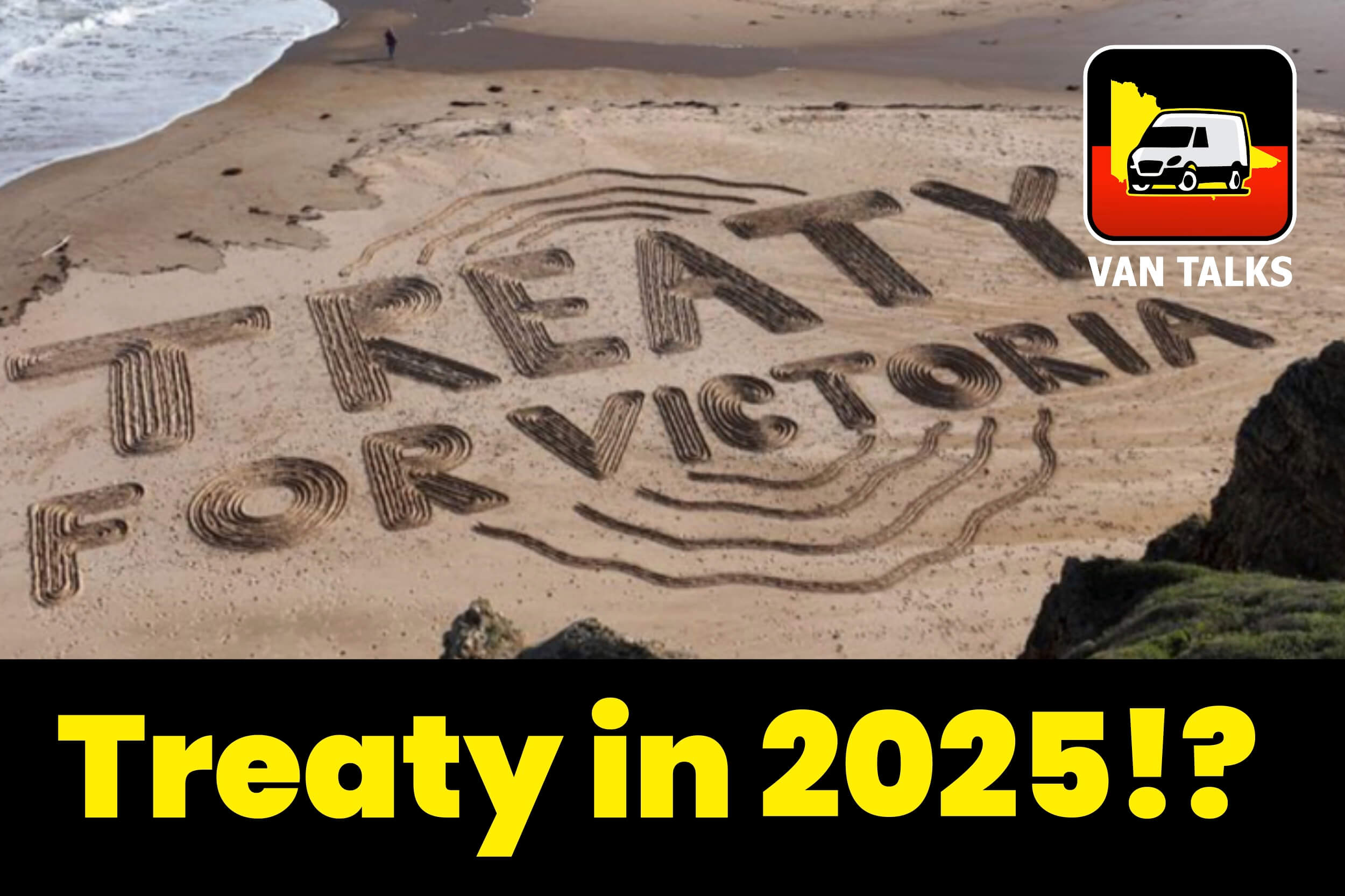
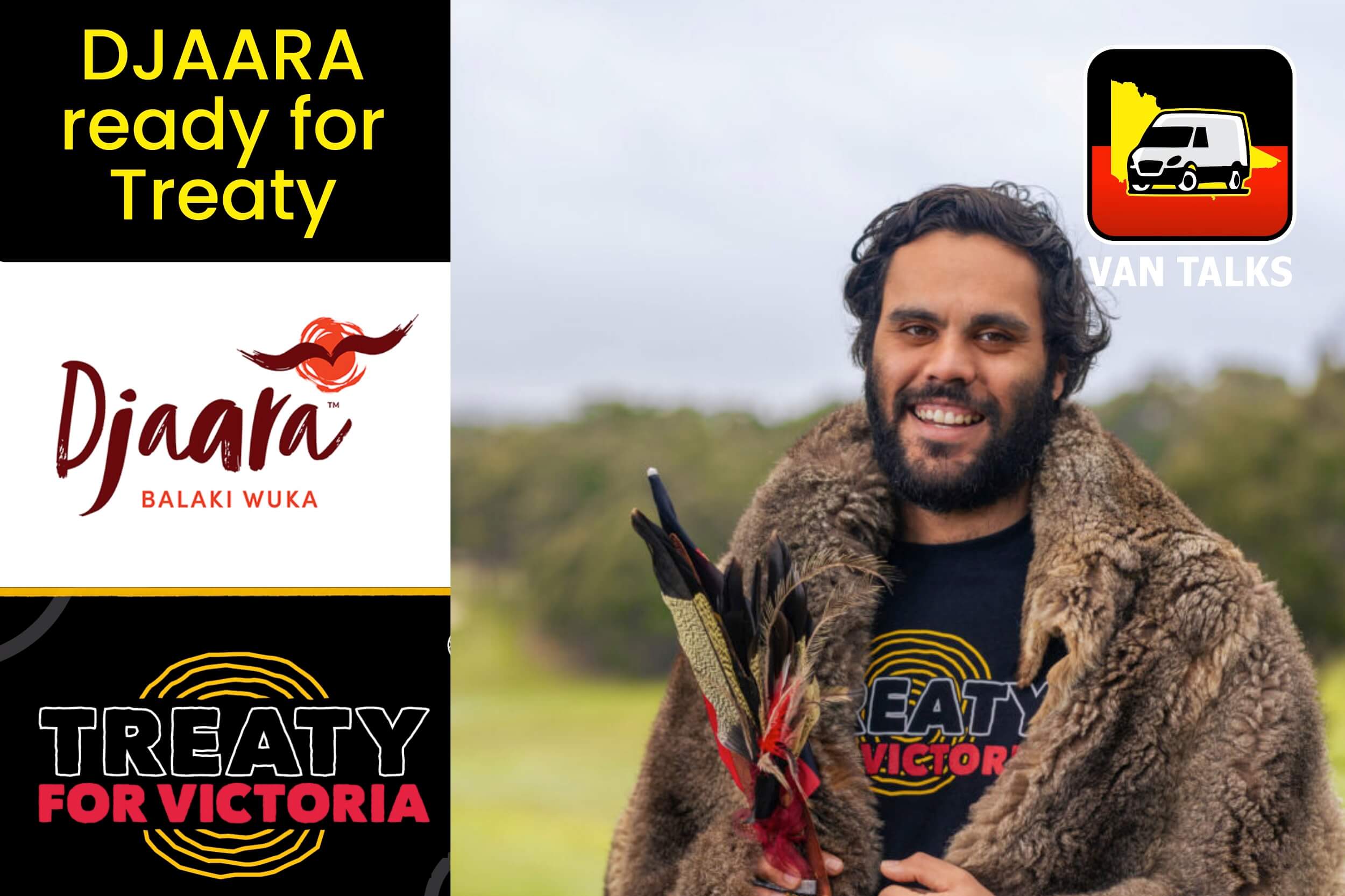
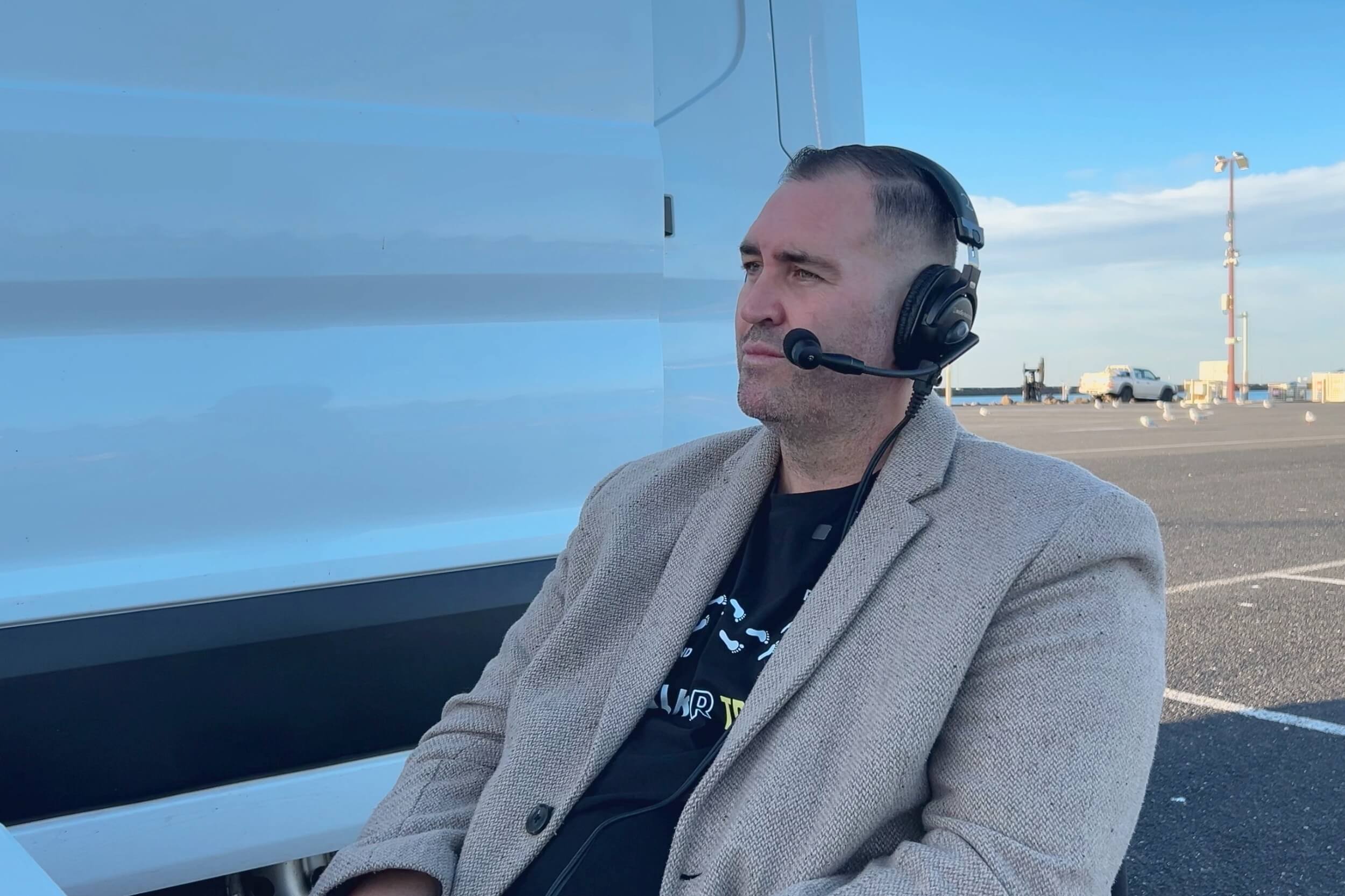
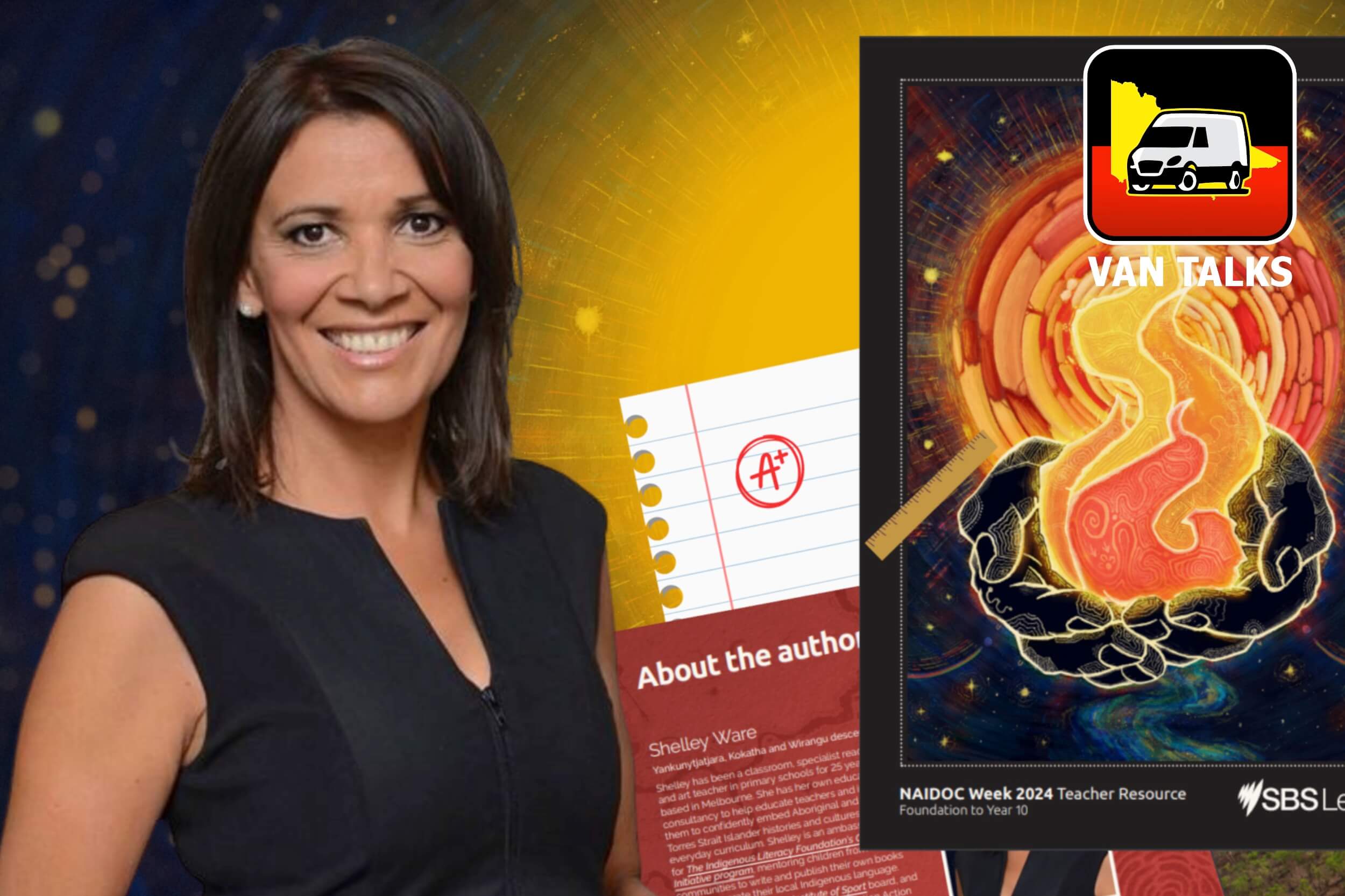
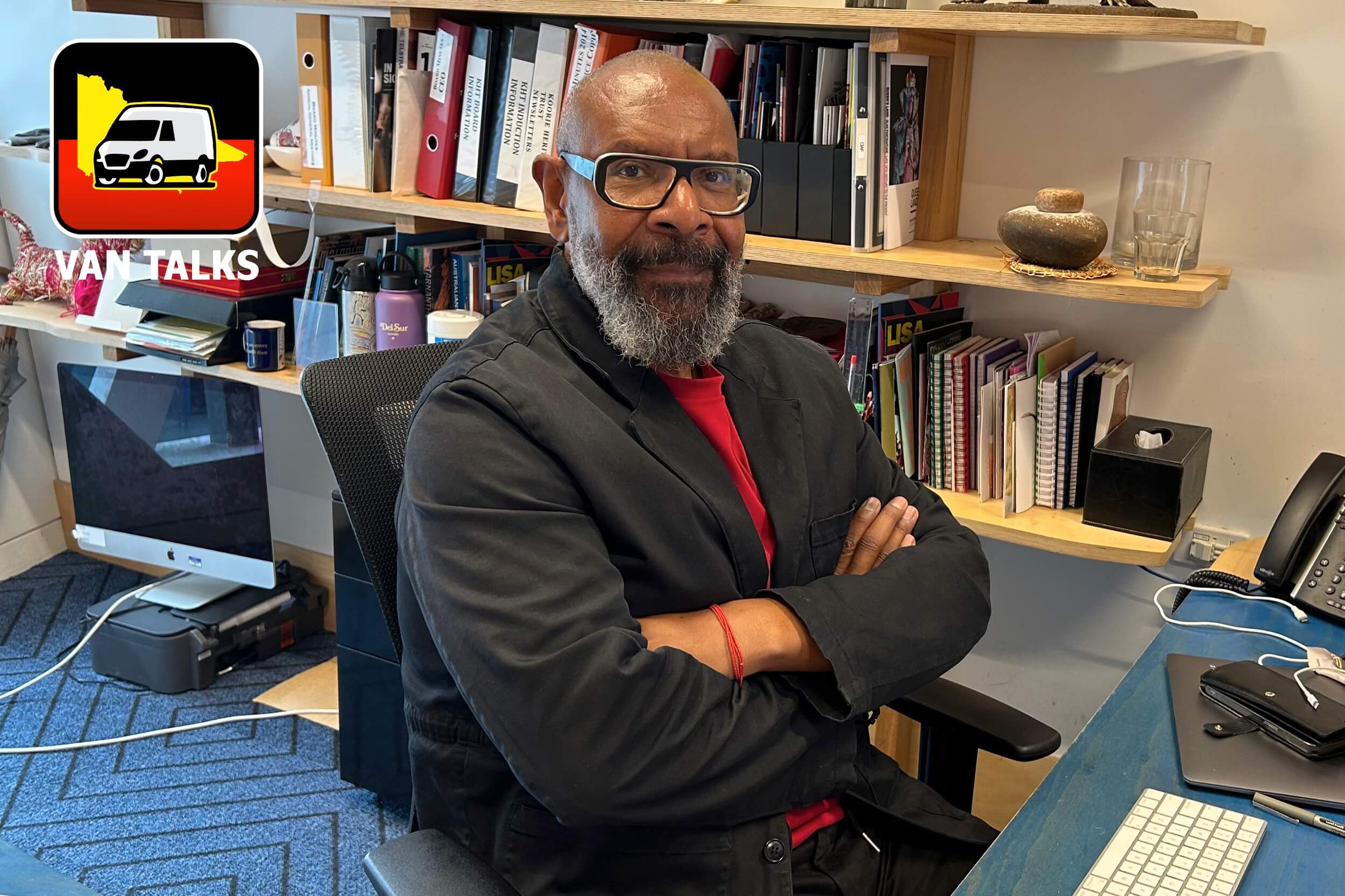

Thank you for this. As I was listening a thought arose about the role of white Australians in facing their own settler family descendants truth. In other words what they no about their own family history and involvement in stolen land, massacres, voting against the rights of Aboriginal & Torres Strait Islander people. Unless this work also occurs white Australians can currently avoid any personal responsibility. FYI I am one of those white Australians.
Hi, Samiro
Thanks for your comment. Definitely this is a major concern. In Victoria, strong work in this area is being achieved with the Yoorrook Justice Commission. At a Federal level, there is the possibility of a national truth-telling commission. We all, regardless of our heritage, must face up to the truth of this country’s recent history. Thanks – Charles